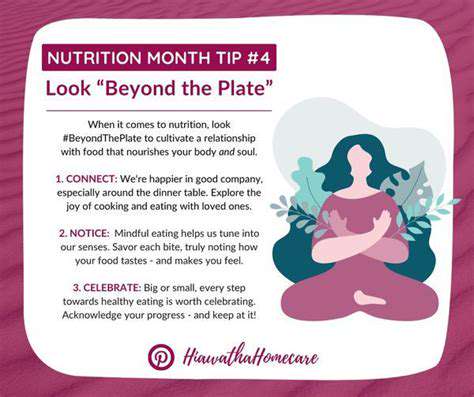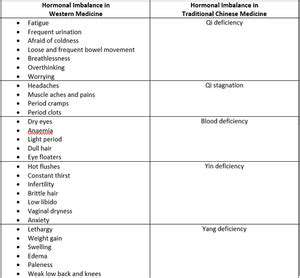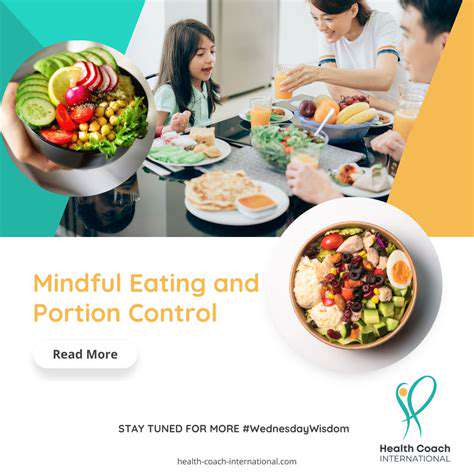Food and Your Emotional Health: A Holistic View
Beyond the Plate: Mindful Eating Practices

Mindful Eating for Enhanced Well-being
Mindful eating goes beyond simply enjoying a meal; it's a practice that encourages a deeper connection with the food we consume and the impact it has on our bodies and minds. By paying close attention to the sensations, flavors, and textures of each bite, we cultivate a heightened awareness of our hunger and fullness cues. This heightened awareness leads to a more balanced and satisfying relationship with food, helping us to make healthier choices and ultimately fostering a greater sense of well-being.
Integrating mindful eating into our daily routines can significantly improve our overall health and happiness. It empowers us to recognize and honor our natural hunger and satiety signals, preventing overeating and promoting a healthier relationship with food. This, in turn, contributes to better digestion, improved mood, and a more positive self-image.
Cultivating a Mindful Eating Practice
Implementing a mindful eating practice involves several key strategies. First, create a dedicated space for meals, free from distractions like screens or work. This dedicated space allows us to fully focus on the act of eating, savoring the experience, and appreciating the present moment. Establishing a routine and consistent meal times also promotes better digestion and regulates our body's natural rhythms.
Paying attention to the physical sensations of hunger and fullness is crucial. Begin by noticing the subtle cues your body sends when it's truly hungry. Then, observe how your body feels as you eat, noticing the textures, aromas, and flavors of each bite. This awareness enables you to recognize when you're truly satisfied, preventing overconsumption and promoting a balanced approach to nourishment.
Another important aspect of mindful eating involves being present in the moment. This means putting away your phone, turning off the television, and focusing on the food in front of you. Engage all your senses – taste, smell, sight, and touch – to fully appreciate the experience of eating. This conscious approach to eating promotes a deeper connection with the food and the body.
Consider the nutritional value and origin of the food you consume. This can help you make more conscious choices aligned with your overall health goals. Mindful eating encourages us to appreciate the journey of food from farm to fork, fostering a deeper understanding of its impact on our bodies and the environment. This practice also promotes a stronger connection to the act of nourishment.
Ultimately, mindful eating is a journey of self-discovery and conscious choices. It encourages us to cultivate a more balanced and appreciative relationship with food, fostering a healthier and more fulfilling approach to eating.
The Role of Hydration and Sleep
Hydration and Mood Regulation
Staying adequately hydrated plays a crucial role in maintaining emotional well-being. When we're dehydrated, our bodies experience a cascade of effects that can significantly impact our mood. Dehydration can lead to fatigue, headaches, and difficulty concentrating, all of which can contribute to feelings of irritability, anxiety, and even depression. Drinking enough water throughout the day helps regulate bodily functions, transports nutrients to cells, and helps maintain a healthy balance of electrolytes, all of which are essential for a stable mood. A consistent hydration routine can help foster a sense of calm and clarity, contributing to better emotional regulation.
Furthermore, proper hydration can improve cognitive function. Our brains rely heavily on water for optimal performance. Dehydration can impair memory, attention span, and decision-making skills, which can all have negative consequences for emotional stability. By ensuring we're consistently hydrated, we support a clearer mind and a more balanced emotional response to daily challenges.
Sleep and Emotional Well-being
Sleep is intrinsically linked to emotional health, acting as a crucial restorative process for both the body and mind. Adequate sleep allows the brain to consolidate memories, process emotions, and repair itself, all of which are vital for maintaining emotional equilibrium. Chronic sleep deprivation can lead to increased stress hormones, impacting mood regulation and increasing vulnerability to emotional disturbances. A consistent sleep schedule, combined with a relaxing bedtime routine, can greatly improve emotional well-being and resilience.
Nutrition and Hydration Synergies
The relationship between nutrition and hydration is a powerful one. The foods we consume can either aid or hinder our hydration efforts. For instance, consuming high-sodium foods can increase the need for fluids to maintain electrolyte balance. Similarly, certain fruits and vegetables are naturally high in water content, helping us stay hydrated while providing essential vitamins and minerals. Understanding these synergies allows us to create a balanced approach to both hydration and nutrition, optimizing our emotional well-being.
The Impact of Poor Hydration on Emotional Responses
Poor hydration can significantly amplify emotional responses. When we're dehydrated, our bodies are working harder to maintain homeostasis, which can lead to heightened stress and anxiety. This can result in a heightened sensitivity to stressors, making it more challenging to manage emotions effectively. Recognizing the correlation between hydration and emotional reactivity allows us to proactively address potential issues, fostering emotional resilience and stability.
Sleep Deprivation and Emotional Dysregulation
Prolonged sleep deprivation can disrupt the delicate balance of neurochemicals in the brain, leading to emotional dysregulation. This can manifest in a range of ways, from irritability and mood swings to difficulty managing stress and increased risk of emotional outbursts. Prioritizing sleep is crucial for maintaining emotional stability and creating a foundation for healthy coping mechanisms during times of stress. Ensuring enough sleep helps promote emotional well-being by allowing the body and mind to recover and restore.
Hydration and Sleep: A Holistic Approach
Ultimately, maintaining a consistent hydration and sleep routine is a cornerstone of holistic emotional well-being. By prioritizing both, we create a supportive environment for the body and mind to function optimally. This approach extends beyond simply meeting basic needs; it's about cultivating a mindful relationship with our bodies, recognizing the powerful interplay between physical and emotional health. This holistic approach to hydration and sleep promotes emotional resilience, allowing us to navigate daily challenges with greater ease and grace.
Food as Medicine: A Holistic Approach

Understanding the Connection
Food, far from simply providing calories, plays a crucial role in our overall health and well-being. A balanced diet rich in fruits, vegetables, whole grains, and lean proteins can significantly reduce the risk of chronic diseases like heart disease, type 2 diabetes, and certain cancers. This connection between nutrition and health highlights the importance of viewing food as more than just fuel; it's a cornerstone of preventative medicine.
The concept of food as medicine encompasses a holistic approach to health, recognizing the intricate interplay between our diet, lifestyle, and overall well-being. It's more than just eating the right foods; it's about understanding how different nutrients impact our bodies and how we can utilize them to support our optimal health and prevent disease.
The Power of Specific Nutrients
Certain nutrients, like antioxidants found in colorful fruits and vegetables, are crucial for fighting free radicals, which can damage cells and contribute to aging and disease. Vitamins and minerals play essential roles in various bodily functions, from supporting immune health to maintaining strong bones and healthy skin.
A diet rich in these beneficial nutrients can significantly bolster our natural defenses, promoting a healthier immune response and contributing to a more resilient body overall. Understanding the specific roles different nutrients play empowers us to make informed choices about the foods we consume.
Beyond the Plate: Lifestyle Integration
Integrating food as medicine into our daily lives goes beyond simply consuming specific foods. It encompasses a broader approach that includes regular physical activity, stress management techniques, and sufficient sleep. These lifestyle factors are inextricably linked to our overall health and influence how our bodies process and utilize the nutrients from our food.
Personalized Dietary Strategies
Recognizing that individual needs vary, a personalized approach to food as medicine is essential. Factors such as age, genetics, and existing health conditions should all be considered when designing a dietary strategy. Consulting with a registered dietitian or a healthcare professional can provide tailored guidance and ensure that any dietary changes are safe and effective.
The Role of Prevention and Treatment
The concept of food as medicine extends beyond just preventing disease; it can also play a significant role in managing existing health conditions. Certain foods and dietary approaches can help alleviate symptoms, improve quality of life, and support the body's natural healing processes. This holistic approach, emphasizing the power of nutrition, can significantly enhance our overall well-being and contribute to a healthier, more vibrant life.











